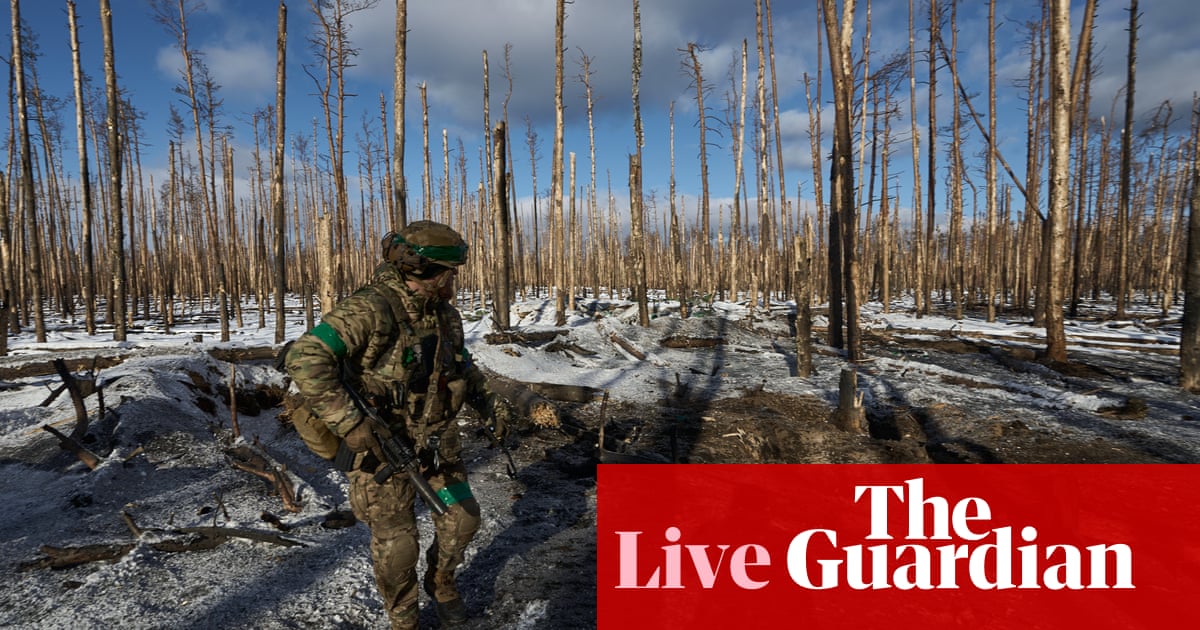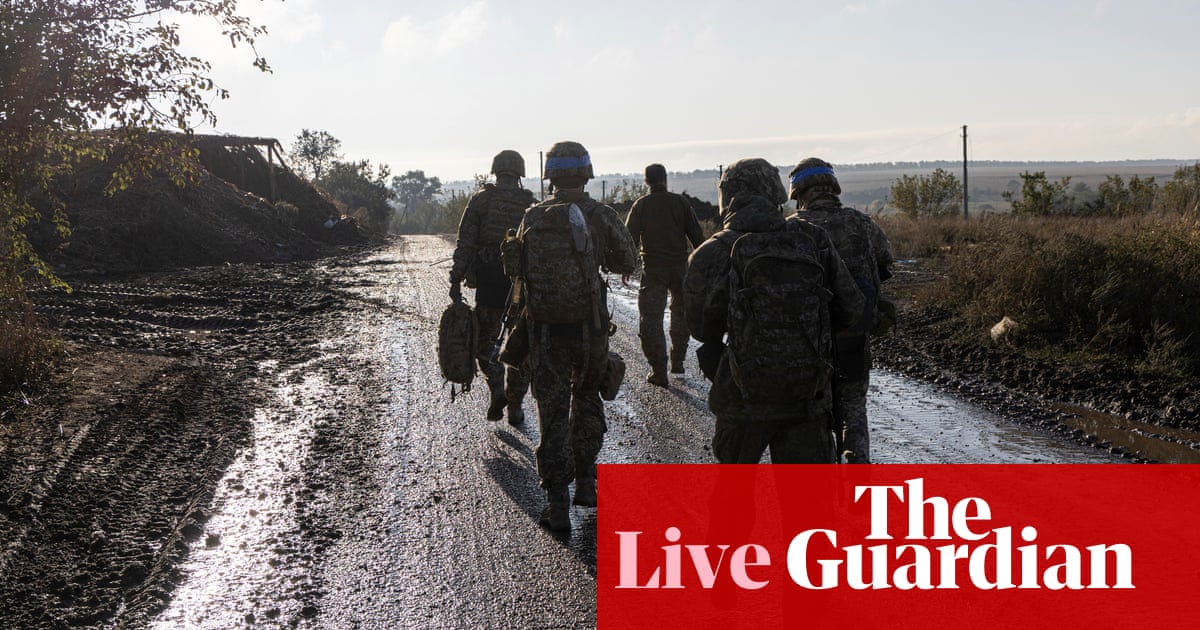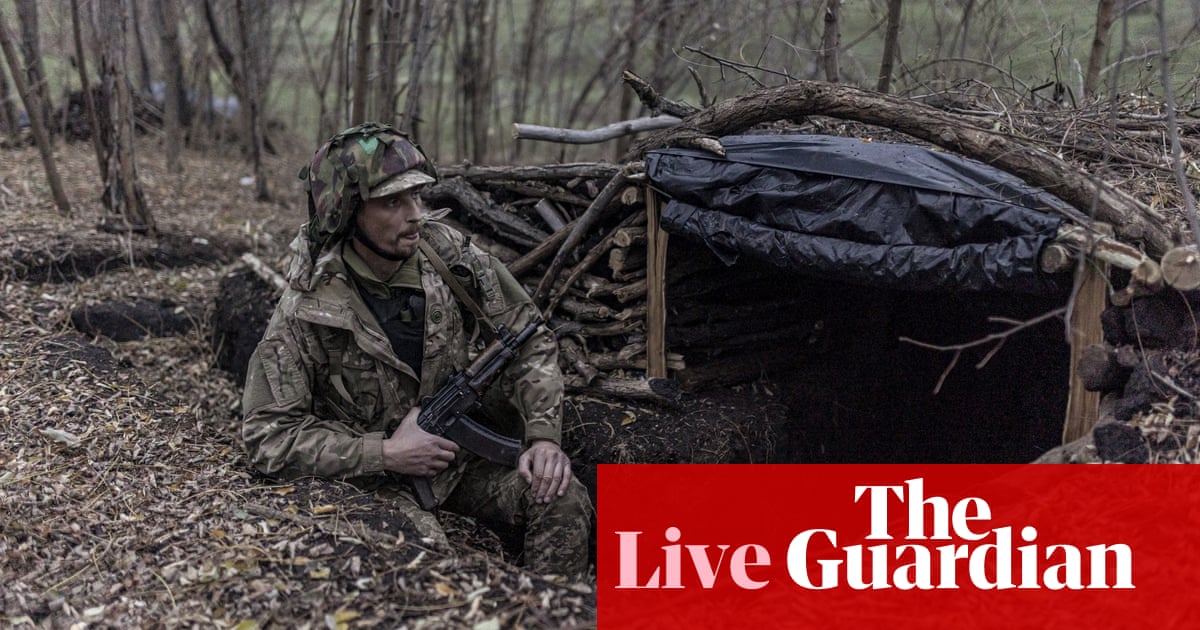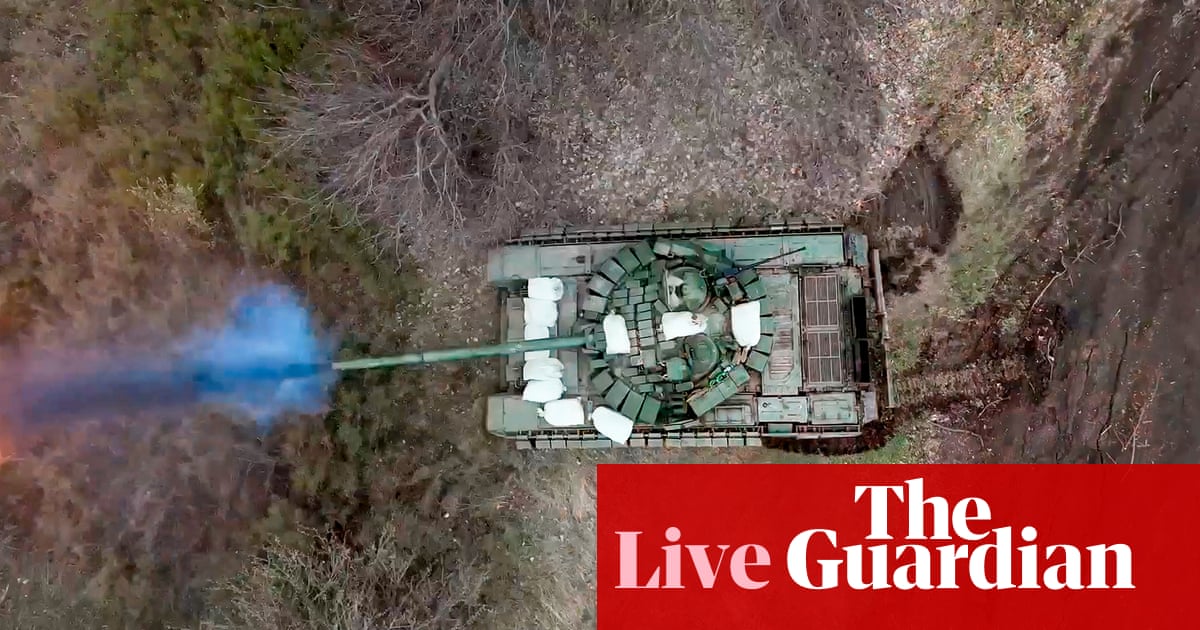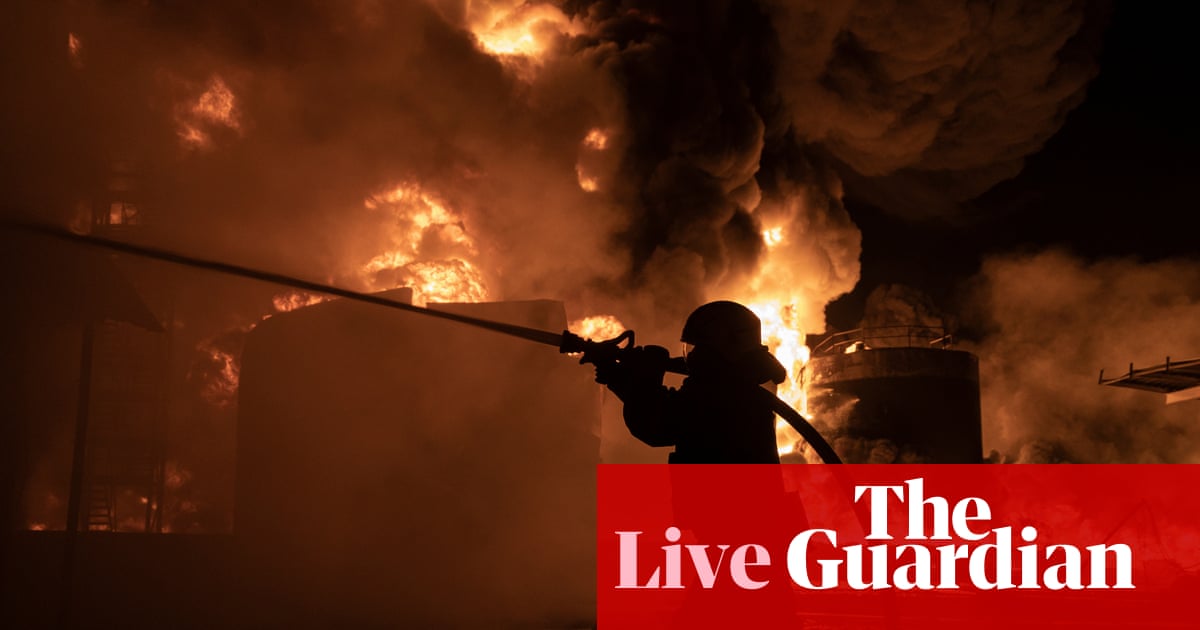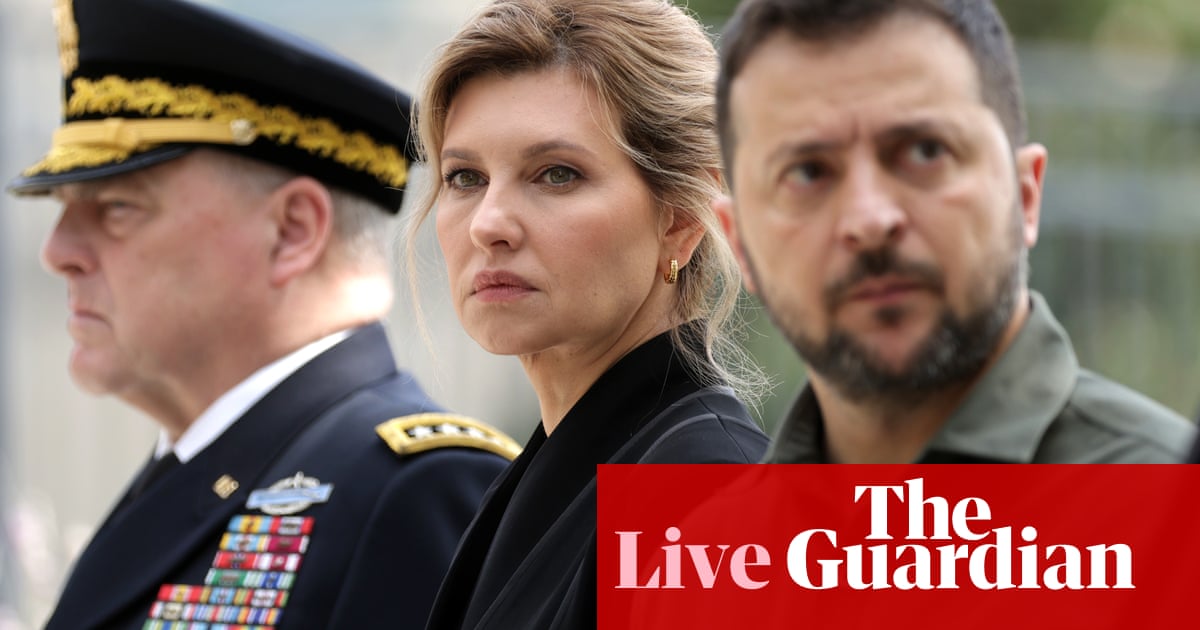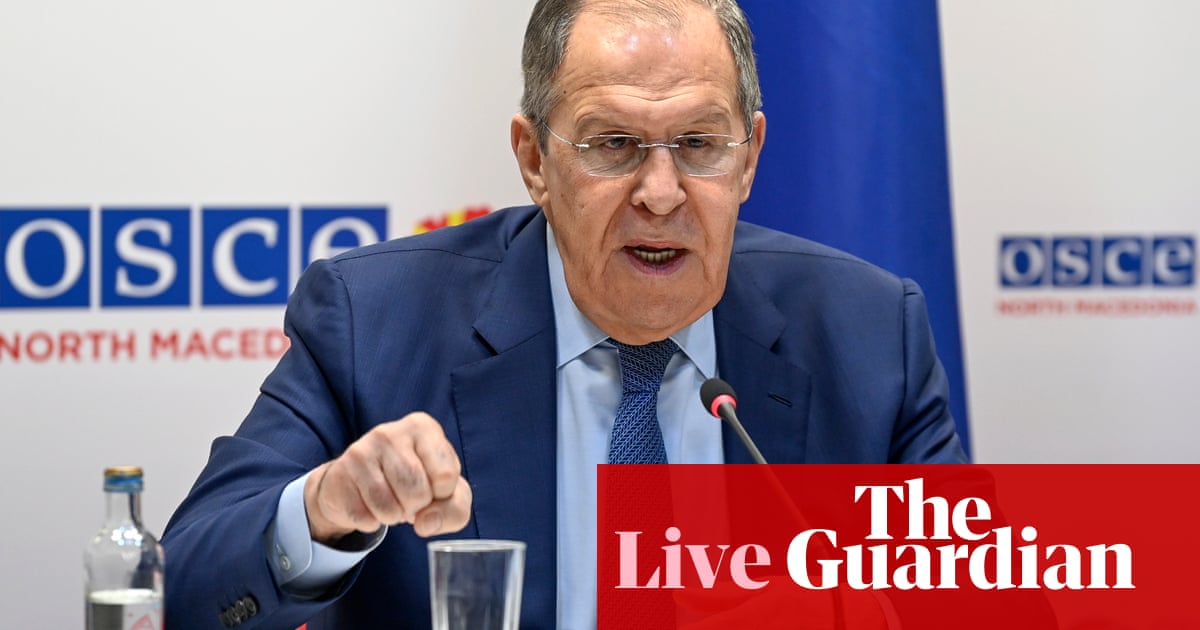
Ukrainian parliament passes bill broadening civilian mobilisation to boost fledgling military manpower
Ukraine’s parliament passed a controversial bill on Thursday that will change the rules on civilian military mobilisation in an effort to address fledgling manpower among its forces.
The legislation, which must be signed by president Volodymyr Zelenskiy before it becomes law, is seen as crucial for Ukraine to address what military analysts say are major manpower problems as it fights a better armed and larger foe.
The bill was passed in its final reading with a majority of 283 votes after months of deliberations, Yaroslav Zhelezniak, a lawmaker for the Holos party, wrote on the Telegram messaging app.
A full, final text with all the amendments was not immediately published on the parliament’s websites but it was clear that a demobilisation date for soldiers who have spent long periods fighting on the frontlines a chance to return home has been scrapped, a highly sensitive issue for the many thousands of people who joined the army when Russia’s launched its full-scale invasion.
The news comes as domestic fatigue against the long-running war has set in after a failed summer assault and the country’s forces being outnumbered and outgunned by Russia. Last week, Zelenskiy signed a bill to lower the minimum conscription age from 27 to 25.
Zelenskiy has signed a seperate bill requiring men who were given military waivers on disability grounds to undergo another medical assessment, another measure that could help the military draft more fighters.
Viral videos have shown men snatched from the street to be conscripted, and there have been numerous corruption scandals of officials taking bribes to provide exemption. In August, Zelenskiy fired every regional recruitment chief.
Lawmaker Oleksandr Fedienko said the adoption of the law on mobilisation sent a “message to our partners that we are ready to retake our territory and we need weapons.”
On the battlefield, Russia is inching forward in the east and Ukraine is on the back foot facing shortages of artillery shells amid a slowdown in western military assistance.
Oleksandr Pavliuk, the ground forces commander, called on Ukrainians earlier this week to enlist in the army or to be ready to serve in the army.
“We must realize, no one will be able to sit tight,” he wrote on Facebook.
“No matter how much help we get, no matter how many weapons we have, we lack people! The equipment doesn’t drive by itself, the weapon doesn’t shoot by itself, and the drone won’t fly by itself,” he said.
It took the Ukrainian parliament several months to put the bill to a final vote this week, as politicians accused each other of drafting poorly worded amendments and lacking the political will to approve unpopular changes.
Over 4,000 amendments were submitted after the first reading was passed in February.
Closing summary
This blog is now closing. Below is a roundup of today’s stories:
Ukraine’s parliament passed a controversial bill on Thursday that will change the rules on civilian military mobilisation in an effort to address fledgling manpower among its forces. The legislation, which must be signed by president Volodymyr Zelenskiy before it becomes law, is seen as crucial for Ukraine to address what military analysts say are major manpower problems as it fights a better armed and larger foe.
Russian forces outnumber Ukrainian troops seven to ten times in eastern regions, Ukraine’s Gen Yuriy Sodol told parliament on Thursday. “The enemy outnumbers us by 7-10 times, we lack manpower,” said Sodol, who is commanding the troops in Kharkiv, Donetsk and Luhansk regions in eastern Ukraine.
The mass use of “drop-and-forget” guided bombs containing foreign components is driving Russian advances in Ukraine, with up to 500 now being fired a week, according to a Ukrainian government analysis. High explosive and cluster bombs fitted with “UMPC” guiding systems with a range of 40-60km (25-37 miles) are now said to be a central threat on the frontline, forcing back Ukrainian forces.
A Russian missile attack on Ukraine’s southern city of Mykolaiv on Thursday killed two people. At least four more were injured, the regional governor said.
Ukraine and Latvia signed a bilateral security agreement, Volodymyr Zelenskiy announced during a visit to Vilnius. Zelenskiy said: “It envisages Latvia’s annual military support for Ukraine at 0.25% of GDP. Latvia also made a 10-year commitment to assist Ukraine with cyber defence, demining, and unmanned technologies, as well as support for Ukraine’s EU and Nato accession.”
Reuters reports that Russia used guided bombs to attack a thermal power plant in Ukraine’s northern city of Sumy, the regional military administration said. It said there was no casualties.
Reuters has an overview of the Ukrainian mobilisation bill that was passed by parliament on Thursday. President Volodymyr Zelenskiy must sign it off before it becomes law.
Military records
The bill would oblige Ukrainian men between 18 and 60 years of age to update their personal data with the military authorities, allowing draft offices to see more easily who can be called up in any given region.
Military-age men would be legally required at all times to carry the registration document they are given by the draft office. Draft officers would be allowed to ask to see the document in the street.
Watered-down punishments
The bill would ban people from driving vehicles if they do not abide by the mobilisation rules. An earlier draft had proposed tough punishments such as asset freezes for such people, but that was cut after a public outcry. A separate bill proposing fines for draft dodgers passed its first reading on Wednesday.
Demobilisation
The bill does not set any time limit for wartime military service, meaning that soldiers who have been fighting since the February 2022 beginning of the full-scale invasion still have no sense of when they will be demobilised. An earlier draft of the bill had proposed setting a time limit.
Military registration for Ukrainians abroad
Martial law prohibits men of military age from going abroad and there is no procedure for calling up Ukrainian men who are abroad. The bill proposes a tracking procedure but it is unclear what that would look like in practice as it is yet to be determined by the government.
Receiving consular services for things like renewing passports would require Ukrainian men to present their military registration documents. It would be possible for them to register online without necessarily visiting draft offices in Ukraine.
Perks for volunteer fighters
The bill proposes offering financial perks for people who volunteer to fight in the army and sign an army contract. In particular, those bonuses could include a certificate to buy a vehicle and financial assistance for first mortgage payments.
Other provisions
The bill would abolish mandatory conscription for Ukrainian men aged 18 or older, and replace it with basic military training for all men starting from September 2025.
One new provision in the bill would allow people who have been convicted and given a suspended sentence to serve in the army. Convicts are currently banned from any type of military service.
After being mobilised, all men must undergo compulsory training before being sent to a combat area.
In some cases, authorities would be able to seize vehicles from citizens and enterprises for the army’s needs.
Mass use of guided bombs driving Russian advances
The mass use of “drop-and-forget” guided bombs containing foreign components is driving Russian advances in Ukraine, with up to 500 now being fired a week, according to a Ukrainian government analysis.
High explosive and cluster bombs fitted with “UMPC” guiding systems with a range of 40-60km (25-37 miles) are now said to be a central threat on the frontline, forcing back Ukrainian forces.
According to a Ukrainian government report obtained by the Guardian, such weapons fired from afar by aircraft “played a key role in the destruction of [the eastern city of] Avdiivka and the seizure of its ruins by Russia”.
Russia took full control in mid-February of Avdiivka, in the industrial Donbas region, its biggest gain since capturing Bakhmut last May.
The Ukrainian analysts write:
Russia uses UMPC bombs primarily to its targets in frontline areas, minimising the possibility of its own aircraft being hit by Ukrainian air defences. In just one week, from 26 February to 3 March, Russia used more than 500 [guided aerial bombs with a mounted UMPC].
Here are some of the latest images coming through from photo agencies:
We’ve got a bit more on Ukraine’s new mobilisation bill aimed at boosting troop numbers.
Reuters reports that it is unclear that Ukraine, with its ongoing ammunition shortages, has the ability to arm large numbers of recruits without a fresh injection of Western aid.
Nevertheless, Volodymyr Fesenko, an analyst at the Center for Applied Political Studies Penta, said the law was crucial for Kyiv’s ability to keep up the fight against Russia, even if it is unpopular domestically.
A large part of the people do not want their loved ones to go to the front, but at the same time they want Ukraine to win.
Ukrainian troops outnumbered 7 to 10 by Russian forces in eastern regions, general says
Russian forces outnumber Ukrainian troops seven to ten times in eastern regions, Ukraine"s Gen Yuriy Sodol told parliament on Thursday, Reuters reports.
"The enemy outnumbers us by 7-10 times, we lack manpower," said Sodol, who is commanding the troops in Kharkiv, Donetsk and Luhansk regions in eastern Ukraine.
Earlier on Thursday, Ukraine’s parliament passed a controversial bill that will change the rules on civilian military mobilisation in an effort to address fledgling manpower among its forces.
A full, final text with all the amendments was not immediately published on the parliament’s websites but it was clear that a demobilisation date for soldiers who have spent long periods fighting on the frontlines a chance to return home has been scrapped.
Kremlin spokesman Dmitry Peskov said on Thursday that any negotiations on Ukraine without Russia were meaningless, Reuters reports.
“We have repeatedly said that negotiations without Russia were meaningless … President Putin has repeatedly emphasised that we remain open to the negotiation process,” Peskov said.
The Swiss government will host a two-day high-level conference in June aimed at achieving peace in Ukraine, it said on Wednesday, although Russia has made clear it will not take part in the initiative.
Ukraine and Latvia sign bilateral security agreement
Ukraine and Latvia have signed a bilateral security agreement, Volodymyr Zelenskiy has announced, during a visit to Vilnius.
Writing on X, Zelenskiy said: “Latvian President Edgars Rinkevics and I just signed a bilateral security agreement between Ukraine and Latvia.
“It envisages Latvia"s annual military support for Ukraine at 0.25% of GDP. Latvia also made a 10-year commitment to assist Ukraine with cyber defence, demining, and unmanned technologies, as well as support for Ukraine"s EU and Nato accession.
“I am grateful to our friend and partner, Latvia. This is precisely the specificity and predictability that our struggle for freedom and independence requires.”
Two killed in Russian missile attack in south Ukraine
A Russian missile attack on Ukraine"s southern city of Mykolaiv on Thursday killed two people and injured at least four more, Reuters reports citing the regional governor.
Ukrainian parliament passes bill broadening civilian mobilisation to boost fledgling military manpower
Ukraine’s parliament passed a controversial bill on Thursday that will change the rules on civilian military mobilisation in an effort to address fledgling manpower among its forces.
The legislation, which must be signed by president Volodymyr Zelenskiy before it becomes law, is seen as crucial for Ukraine to address what military analysts say are major manpower problems as it fights a better armed and larger foe.
The bill was passed in its final reading with a majority of 283 votes after months of deliberations, Yaroslav Zhelezniak, a lawmaker for the Holos party, wrote on the Telegram messaging app.
A full, final text with all the amendments was not immediately published on the parliament’s websites but it was clear that a demobilisation date for soldiers who have spent long periods fighting on the frontlines a chance to return home has been scrapped, a highly sensitive issue for the many thousands of people who joined the army when Russia’s launched its full-scale invasion.
The news comes as domestic fatigue against the long-running war has set in after a failed summer assault and the country’s forces being outnumbered and outgunned by Russia. Last week, Zelenskiy signed a bill to lower the minimum conscription age from 27 to 25.
Zelenskiy has signed a seperate bill requiring men who were given military waivers on disability grounds to undergo another medical assessment, another measure that could help the military draft more fighters.
Viral videos have shown men snatched from the street to be conscripted, and there have been numerous corruption scandals of officials taking bribes to provide exemption. In August, Zelenskiy fired every regional recruitment chief.
Lawmaker Oleksandr Fedienko said the adoption of the law on mobilisation sent a “message to our partners that we are ready to retake our territory and we need weapons.”
On the battlefield, Russia is inching forward in the east and Ukraine is on the back foot facing shortages of artillery shells amid a slowdown in western military assistance.
Oleksandr Pavliuk, the ground forces commander, called on Ukrainians earlier this week to enlist in the army or to be ready to serve in the army.
“We must realize, no one will be able to sit tight,” he wrote on Facebook.
“No matter how much help we get, no matter how many weapons we have, we lack people! The equipment doesn’t drive by itself, the weapon doesn’t shoot by itself, and the drone won’t fly by itself,” he said.
It took the Ukrainian parliament several months to put the bill to a final vote this week, as politicians accused each other of drafting poorly worded amendments and lacking the political will to approve unpopular changes.
Over 4,000 amendments were submitted after the first reading was passed in February.
Russian overnight strikes completely destroyed Trypilska thermal power plant outside Ukraine"s capital Kyiv, Reuters reports citing the Interfax-Ukraine news agency who quoted a senior company official as saying.
Russia staged a major missile and drone strike on Ukrainian energy infrastructure early on Thursday, damaging substations and power facilities in five regions and causing emergency power cuts for at least 200,000 people, Kyiv officials said.
Reuters reports that Ukrainian president Volodymyr Zelenskiy will visit Lithuania"s capital Vilnius on Thursday, the Lithuanian president"s office said in a statement.
Opening summary
Good morning, Ukrainian president Volodymyr Zelenskiy called for more air defence supplies on Thursday morning after Russia used over 40 missiles and 40 drones to deal damage to the country’s national grid infrastructure in five regions.
Here is a roundup of the other big stories:
A Russian strike on a grocery store and a pharmacy in the north-eastern Kharkiv region killed three people, including a 14-year-old girl, on Wednesday. The strike on Lyptsi, about 10km from the Russian border, also injured a 16-year-old boy and a woman. Another strike with guided aerial bombs destroyed a hospital in the border town of Vovchansk.
In Ukraine’s southern Odesa region, Russian missiles killed four people, including a girl aged 10, and injured seven more, the governor, Oleg Kiper, said on Telegram. Ukraine’s energy ministry said two facilities in the south had been targeted in strikes during the night, causing power outages in two regions.
In Russia, a Ukrainian drone attack on Wednesday killed three people, including two children, in the Kursk border region, the local governor said. The drone fired a rocket at a civilian car in a village in Korenevski district, the governor, Roman Starovoyt, said on Telegram.
Blasts were reported in Ukraine’s north-eastern, southern and western regions on Thursday morning. Explosions were heard in the city of Kharkiv, its mayor, Ihor Terekhov, said on Telegram. The Kharkiv attack left more than 200,000 consumers without power, Oleksiy Kuleba, the deputy head of the Ukrainian president’s office, said. There were also blasts in the Zaporizhzhia region, according to its governor, Ivan Fedorov. The governor of the Lviv region, Maksim Kozytskyi, said on Telegram that air defences were working in the area.
The Ukrainian president, Volodymyr Zelenskiy, called for more air defence supplies on Thursday after Russia used more than 40 missiles and 40 drones to deal damage to the country’s critical infrastructure, including substations and power-generating facilities, in five regions.
The top US general in Europe has told Congress Ukraine will be outgunned 10 to one by Russia within a matter of weeks if more ammunition and weapons are not sent to Kyiv soon. “The Russians fire five times as many artillery shells at the Ukrainians than the Ukrainians are able to fire back. That will immediately go to 10 to one in a matter of weeks,” Gen Christopher Cavoli said. “We’re not talking about months. We’re not talking hypothetically.”
Joe Biden on Wednesday urged the US House of Representatives to vote immediately on the $60bn Ukraine bill. “There’s overwhelming support for Ukraine among the majority of Democrats and Republicans. There should be a vote now,” the president told reporters. The funds passed the Senate but have languished for months in the House, where the speaker, Mike Johnson, has refused to bring a vote to the floor.
Russia’s foreign ministry has criticised plans to hold a Ukraine peace conference in Switzerland as being motivated byelections in the US. The conference is to be held on 15-16 June and Swiss media have said Biden is expected to attend. “American Democrats, who need photos and videos of events that supposedly indicate their project ‘Ukraine’ is still afloat, are behind this,” the Russian foreign ministry spokesperson Maria Zakharova told state-run Tass news agency.
Ukrainian politicians have sparked anger by scrapping a clause in a draft law that would have given soldiers serving for more than 36 months the possibility to be discharged. The clause was removed ahead of its second reading after pressure from the military. The reversal sparked anger across a society exhausted by years of war and risked sapping morale in the stretched armed forces.
The EU’s top court has removed war-related sanctions against prominent billionaires Petr Aven and Mikhail Fridman. The court of justice ruled that the European Council had not presented enough evidence to establish that the pair were involved in efforts that “undermine or threaten the territorial integrity, sovereignty and independence of Ukraine”.
Eight Nordic and Baltic nations are pushing for more support for Ukraine. The Swedish foreign minister, Tobias Billström, said the country supported “an increased role for Nato in providing security related assistance to Ukraine”.
Ukraine and UK signed a framework agreement to cooperate in the defence and arms production sector, officials said in Kyiv, part of a wartime effort to build up Ukraine’s domestic weapons industry by working with allies.
China vowed not to accept “criticism or pressure” over its ties with Russia, after Washington warned that it will hold Beijing responsible if Moscow makes gains in Ukraine.




